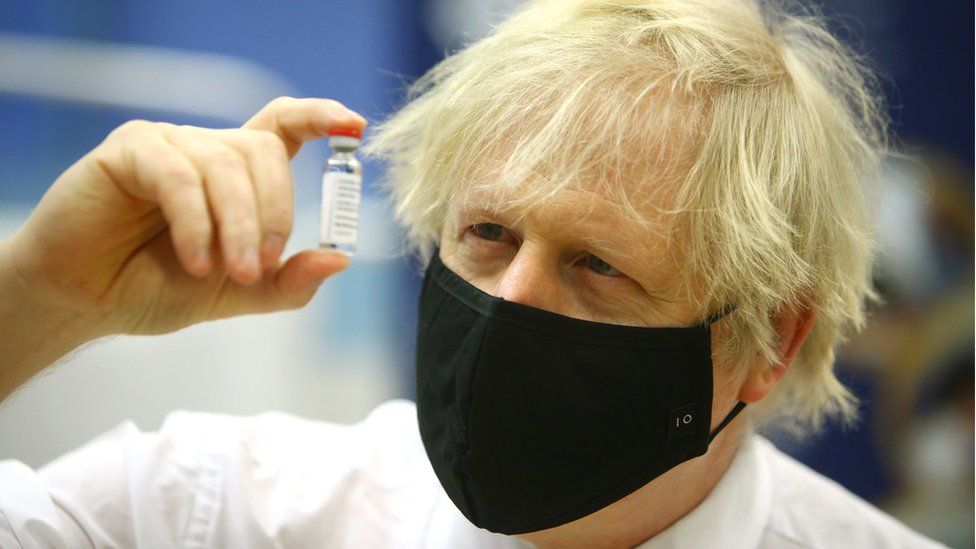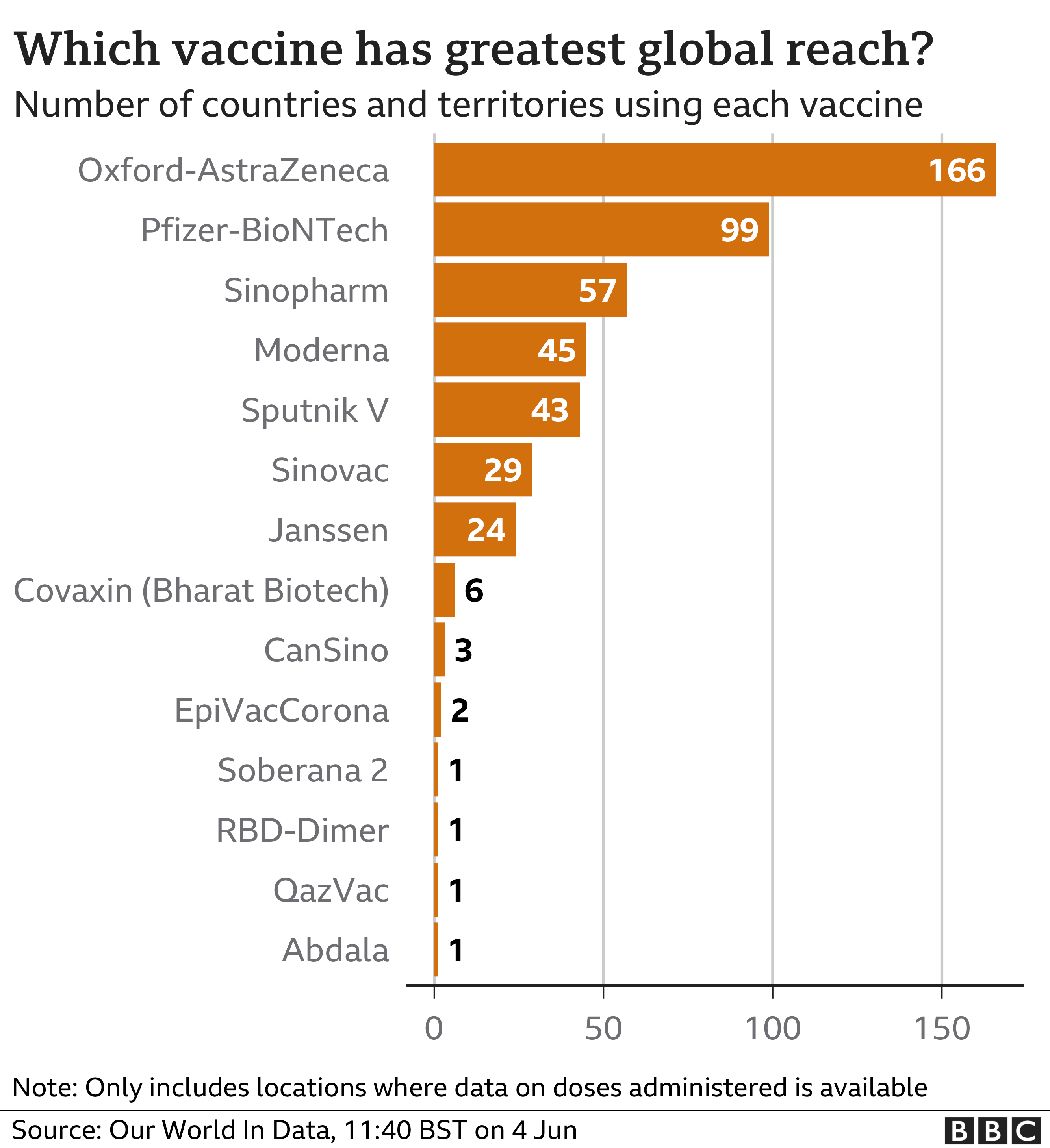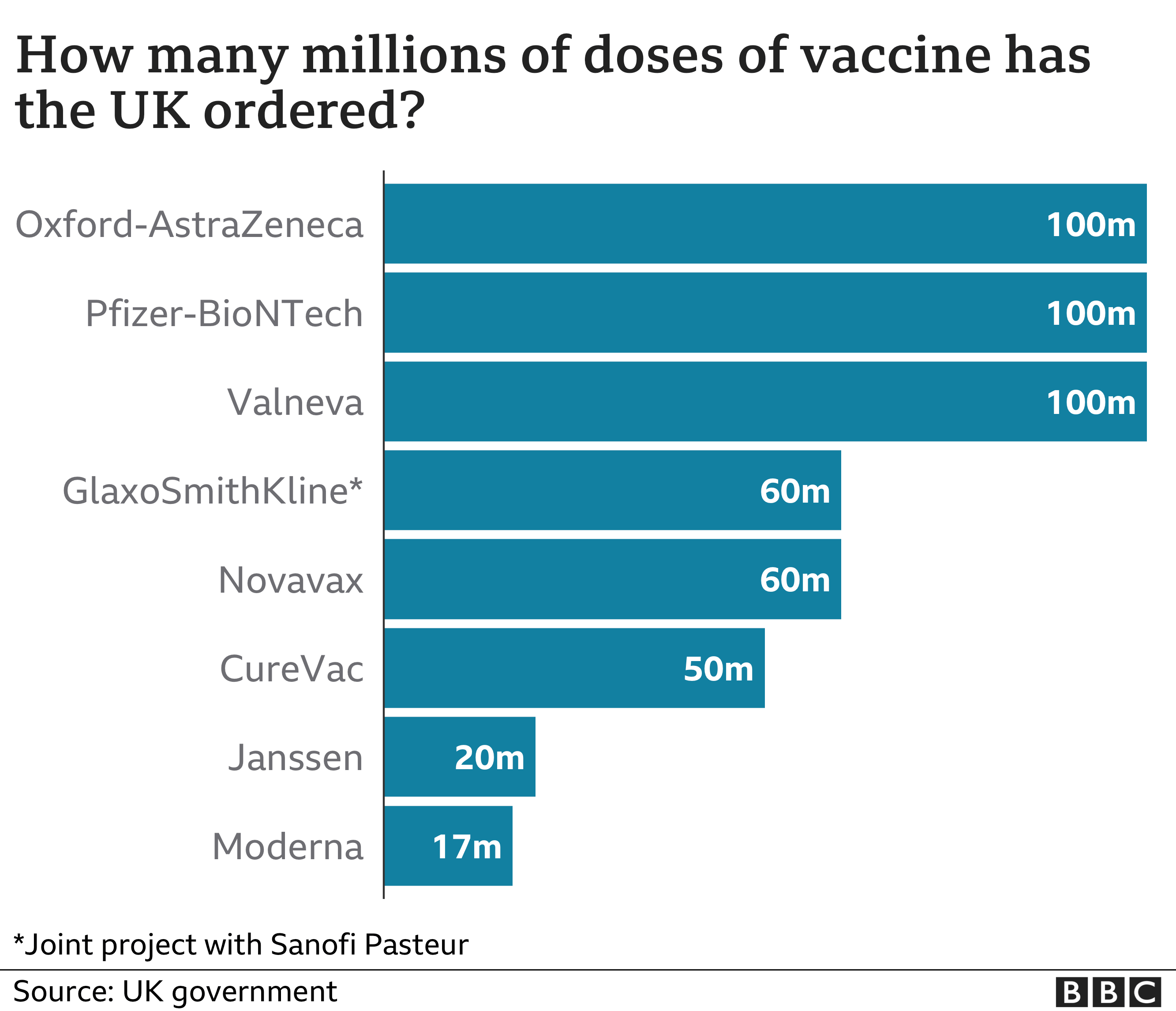Covid: PM to push for world vaccination by end of 2022
By Hazel Shearing
BBC News
Published3 hours ago
G7 summits

PA MEDIA
The G7 summit in Cornwall will begin on Friday
Prime Minister Boris Johnson is to urge leaders of other wealthy countries to commit to vaccinating the world against Covid-19 by the end of next year.
He will lay out a global target at a summit of the G7 group of advanced economies on Friday.
The US, France, Germany, Italy and Japan have all said how many doses they will donate to the global vaccine-sharing programme, Covax.
But the UK and Canada are yet to put figures on their planned contributions.
Covid map: Where are cases the highest?
How fast is worldwide progress?
Why are world leaders coming to the English seaside?
Ahead of the G7 summit, which will take place in Cornwall from Friday, Mr Johnson said he would ask his counterparts to "rise to the greatest challenge of the post-war era" by "vaccinating the world by the end of next year".
Such an achievement would be the "single greatest feat in medical history", he said.
The UK will also encourage more discussion about how manufacturing can be stepped up.
The summit will be the G7 leaders' first face-to-face meeting since the start of the pandemic, and US President Joe Biden's first visit to the UK since taking office.
The US has pledged to donate 80 million vaccine doses to poorer countries, while other G7 countries have offered much smaller numbers.
'Self interest'
There has been frustration from campaigners that the UK has not specified how many doses it will pledge, but the prime minister is expected to do so at the summit.
Last week, MPs and peers wrote to Mr Johnson, urging him to follow fellow G7 countries like Germany, France and Italy who have committed to donating at least 100 million doses before the end of the year.
So far, the UK has only pledged to donate excess doses to the international Covax scheme, which distributes jabs to low and middle-income countries. On Friday, Mr Hancock said the UK did not have any spare doses at the moment.

Former Prime Minister Tony Blair said the "reality" was that governments are "obliged to look after [their] own people" and so will always prioritise vaccinating their own country first.
But he said, "you can't be absolutist about this, there may be some vaccine that we can ship out in advance".
The former Labour leader backed Mr Johnson's call for world vaccination, and called for frontline healthcare workers, the elderly and those in urban areas to be jabbed by the end of this year.
"The reason for doing that is enlightened self-interest. It's not humanitarian simply, it's because it helps us to stop the disease spreading," he told BBC One's Andrew Marr Show.
On Sky News, Mr Hancock defended the UK's record, saying: "This country has done more than any other by making sure that from the start that Oxford [AstraZeneca] vaccine has been available at cost."
More than 40 million people in the UK (76.2% of adults) have had their first dose, according to the government's coronavirus dashboard. Some 27 million people have had two doses (51.6% of adults) and are fully vaccinated.
In England, the gap between doses was reduced last month from 12 to eight weeks for people over 50 and those with severe underlying health conditions.
The NHS is urging those who have been asked to bring forward their second jab to rebook as soon as possible.
Military personnel have been brought in to help speed up the vaccine programme across the UK in the wake of a recent surge in cases partly driven by the Delta variant, first identified in India.
The UK has ordered more than 500 million doses of seven of the most promising vaccines, including the four so far approved for use.
Downing Street said the UK had "led efforts to ensure the world's poorest and most vulnerable people have access to vaccines", referring to its funding of the Oxford-AstraZeneca jab.
It said 96% of the 80 million doses administered by Covax had been supplied by AstraZeneca, and that the UK had given £548m to the scheme.

Source
Prime Minister Boris Johnson is to urge leaders of other wealthy countries to commit to vaccinating the world against Covid-19 by the end of next year.
He will lay out a global target at a summit of the G7 group of advanced economies on Friday.
The US, France, Germany, Italy and Japan have all said how many doses they will donate to the global vaccine-sharing programme, Covax.
But the UK and Canada are yet to put figures on their planned contributions.
Covid map: Where are cases the highest?
How fast is worldwide progress?
Why are world leaders coming to the English seaside?
Ahead of the G7 summit, which will take place in Cornwall from Friday, Mr Johnson said he would ask his counterparts to "rise to the greatest challenge of the post-war era" by "vaccinating the world by the end of next year".
Such an achievement would be the "single greatest feat in medical history", he said.
The UK will also encourage more discussion about how manufacturing can be stepped up.
The summit will be the G7 leaders' first face-to-face meeting since the start of the pandemic, and US President Joe Biden's first visit to the UK since taking office.
The US has pledged to donate 80 million vaccine doses to poorer countries, while other G7 countries have offered much smaller numbers.
'Self interest'
There has been frustration from campaigners that the UK has not specified how many doses it will pledge, but the prime minister is expected to do so at the summit.
Last week, MPs and peers wrote to Mr Johnson, urging him to follow fellow G7 countries like Germany, France and Italy who have committed to donating at least 100 million doses before the end of the year.
So far, the UK has only pledged to donate excess doses to the international Covax scheme, which distributes jabs to low and middle-income countries. On Friday, Mr Hancock said the UK did not have any spare doses at the moment.

Former Prime Minister Tony Blair said the "reality" was that governments are "obliged to look after [their] own people" and so will always prioritise vaccinating their own country first.
But he said, "you can't be absolutist about this, there may be some vaccine that we can ship out in advance".
The former Labour leader backed Mr Johnson's call for world vaccination, and called for frontline healthcare workers, the elderly and those in urban areas to be jabbed by the end of this year.
"The reason for doing that is enlightened self-interest. It's not humanitarian simply, it's because it helps us to stop the disease spreading," he told BBC One's Andrew Marr Show.
On Sky News, Mr Hancock defended the UK's record, saying: "This country has done more than any other by making sure that from the start that Oxford [AstraZeneca] vaccine has been available at cost."
More than 40 million people in the UK (76.2% of adults) have had their first dose, according to the government's coronavirus dashboard. Some 27 million people have had two doses (51.6% of adults) and are fully vaccinated.
In England, the gap between doses was reduced last month from 12 to eight weeks for people over 50 and those with severe underlying health conditions.
The NHS is urging those who have been asked to bring forward their second jab to rebook as soon as possible.
Military personnel have been brought in to help speed up the vaccine programme across the UK in the wake of a recent surge in cases partly driven by the Delta variant, first identified in India.
The UK has ordered more than 500 million doses of seven of the most promising vaccines, including the four so far approved for use.
Downing Street said the UK had "led efforts to ensure the world's poorest and most vulnerable people have access to vaccines", referring to its funding of the Oxford-AstraZeneca jab.
It said 96% of the 80 million doses administered by Covax had been supplied by AstraZeneca, and that the UK had given £548m to the scheme.

Source
No comments:
Post a Comment